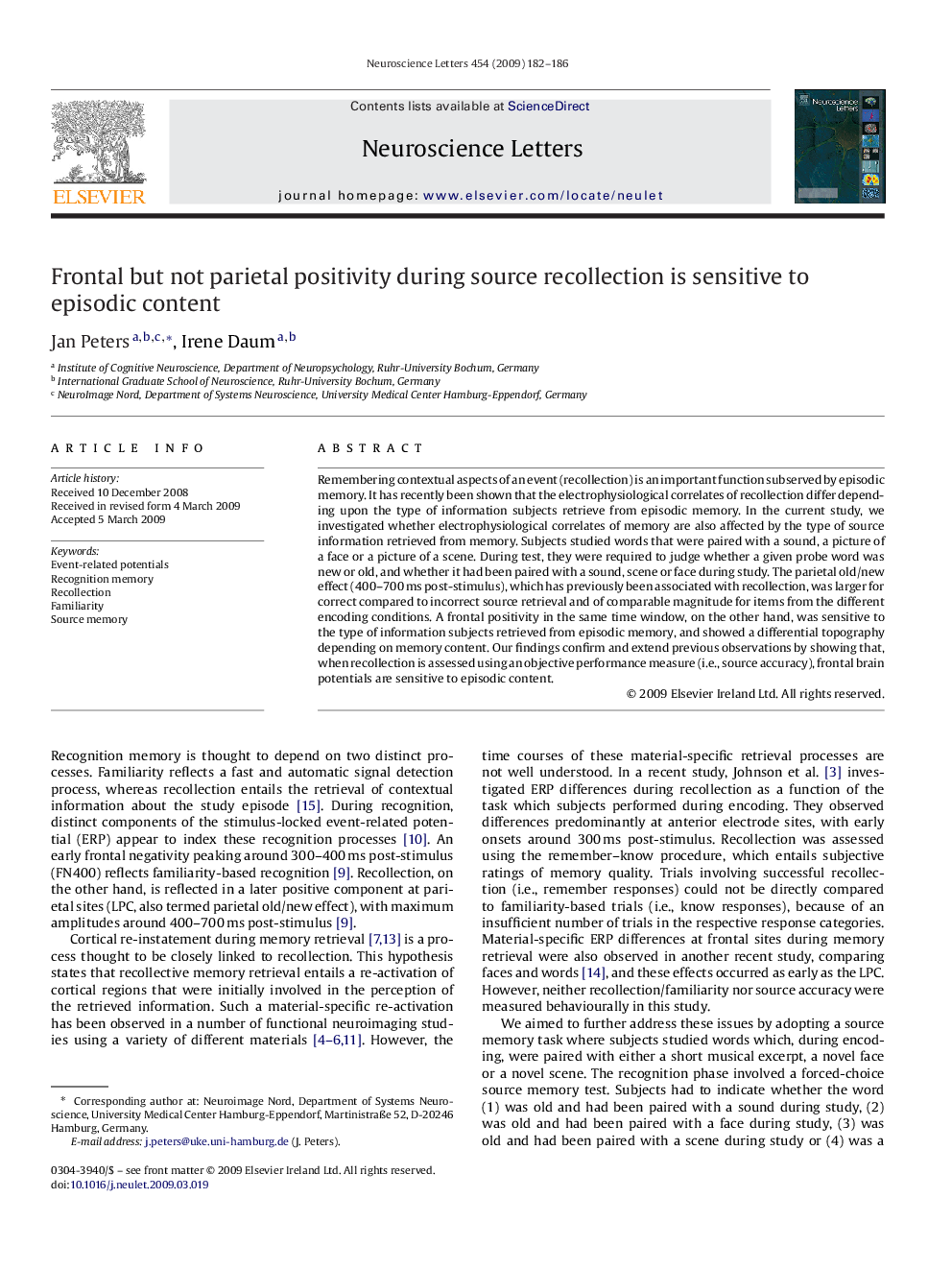| Article ID | Journal | Published Year | Pages | File Type |
|---|---|---|---|---|
| 4347242 | Neuroscience Letters | 2009 | 5 Pages |
Remembering contextual aspects of an event (recollection) is an important function subserved by episodic memory. It has recently been shown that the electrophysiological correlates of recollection differ depending upon the type of information subjects retrieve from episodic memory. In the current study, we investigated whether electrophysiological correlates of memory are also affected by the type of source information retrieved from memory. Subjects studied words that were paired with a sound, a picture of a face or a picture of a scene. During test, they were required to judge whether a given probe word was new or old, and whether it had been paired with a sound, scene or face during study. The parietal old/new effect (400–700 ms post-stimulus), which has previously been associated with recollection, was larger for correct compared to incorrect source retrieval and of comparable magnitude for items from the different encoding conditions. A frontal positivity in the same time window, on the other hand, was sensitive to the type of information subjects retrieved from episodic memory, and showed a differential topography depending on memory content. Our findings confirm and extend previous observations by showing that, when recollection is assessed using an objective performance measure (i.e., source accuracy), frontal brain potentials are sensitive to episodic content.
